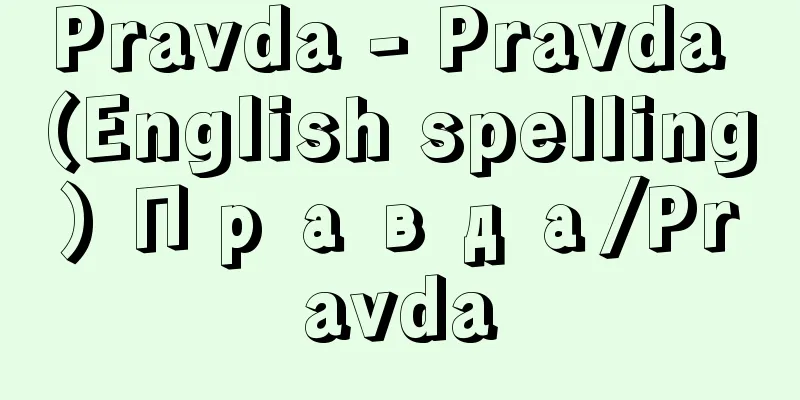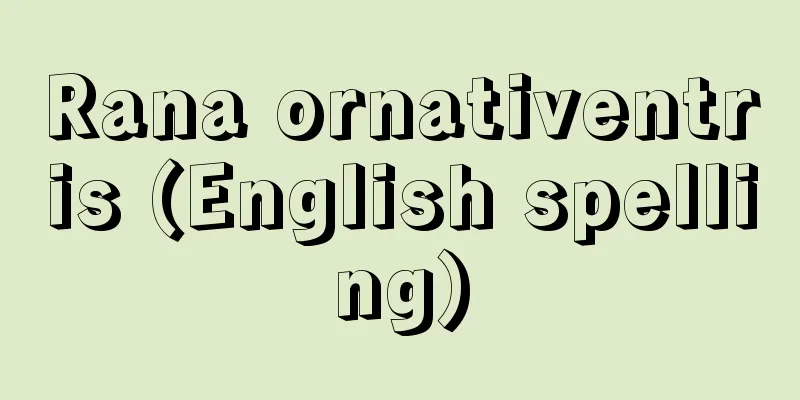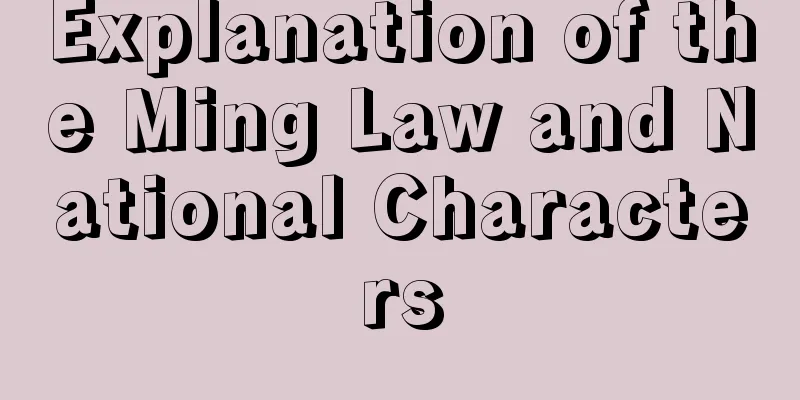Pravda - Pravda (English spelling) Правда/Pravda

|
A daily newspaper published in Moscow and distributed throughout Russia, it was the official organ of the Central Committee of the Soviet Communist Party from 1918 to 1991. Pravda means "truth" in Russian. It was launched underground on May 5, 1912 in St. Petersburg as a Bolshevik organ. One of the founders was Lenin, who supervised the editing of the paper from his place of exile, published many articles, and worked hard to foster revolutionary forces. However, the Tsarist government also exerted severe oppression, and the paper was banned many times, and it continued to be published under different names. In July 1914, the editorial staff was arrested at the same time as the outbreak of World War I, and it was forced to cease publication, but it was revived after the February Revolution in 1917. It moved its headquarters to Moscow in 1918, and has played an extremely important role as a newspaper defending the Communist Party's line ever since. It is said that the circulation during the Soviet era reached 13 million copies. When the Soviet Union collapsed in 1991, readership plummeted and publication was temporarily suspended in March 1992. Management rights were transferred to Greek businessmen, the Yannikos brothers, who continued to publish the paper along a pro-Communist line. In order to secure profits by changing course, the Yannikos brothers' staff launched a new, centrist tabloid weekly paper, Pravda 5, in 1995, but the paper's management continued to be unstable and it closed in July 1998. Meanwhile, after the Communist Party lost the presidential election in July 1996, the editor-in-chief was fired due to a conflict with the owner, and launched a new newspaper, Pravda, the organ of the Russian Communist Party (published three times a week, with a circulation of approximately 52,100 as of 1999), and in 1997, a group calling itself the Pravda Journalists' Group launched another Pravda (published five times a week), so there are now two Pravdas in Russia. [Takashi Ito] [Reference] |Source: Shogakukan Encyclopedia Nipponica About Encyclopedia Nipponica Information | Legend |
|
モスクワで発刊され、ロシア全土に配布される日刊紙で、1918年から91年まで、ソビエト共産党中央委員会の公式機関紙であった。プラウダはロシア語で「真理」を意味する。1912年5月5日にサンクト・ペテルブルグでボリシェビキの機関紙としてアンダーグランドで創刊された。発起人の一人はレーニンで、亡命先から同紙の編集を指導し、多数の論文記事を掲載、革命勢力の育成に力を入れた。しかし、ツァーリ政府の弾圧も激しく、たびたび発行禁止となり、何度も名称を変えて発行し続けた。14年7月、第一次世界大戦勃発(ぼっぱつ)と同時に編集部員が逮捕され停刊に追い込まれたが、17年の二月革命後に復刊。18年に本拠をモスクワに移し、以後、共産党の路線を擁護するきわめて重要な新聞としての役割を果たしてきた。ソ連時代の発行部数は1300万部に及んだといわれる。91年にソ連が崩壊すると、読者は激減、92年3月には一時発行が停止、経営権をギリシア人実業家・ヤンニコス兄弟に譲渡し、その後も親共路線で発行を続けていた。路線変更で利益確保をねらうヤンニコス兄弟側スタッフは95年に新たに中道的なタブロイド判週刊紙『プラウダ5』を創刊したが、不安定な経営が続き、98年7月に廃刊となった。一方、1996年7月の大統領選で共産党が敗退した後、オーナーとの対立で解任された編集長は、新たにロシア共産党の機関誌『プラウダ』(週3回発行、99年現在約5万2100部)を創刊、さらに97年にはプラウダジャーナリスト集団と名のるグループが別の『プラウダ』(週5回発行)を創刊したので、ロシアには二つのプラウダが存在している。 [伊藤高史] [参照項目] |出典 小学館 日本大百科全書(ニッポニカ)日本大百科全書(ニッポニカ)について 情報 | 凡例 |
>>: Blouse - Burausu (English spelling) blouse
Recommend
Crashaw - Richard Crashaw
A British metaphysical and religious poet. His wo...
Giant pyramidal cell - Giant pyramidal cell
…In the human cerebral motor cortex, the lips and...
Object Fallacy - Customer Writing
...There are cases where the mistake is within th...
Battle of Ishibashiyama
The first battle after Minamoto no Yoritomo raised...
Mammoth (English spelling)
A fossil genus belonging to the order Proboscidea ...
Lennie Tristano
1919‐78 A white American jazz pianist and bandlead...
Enophthalmos
...In addition, radiation therapy is also used fo...
Autourgoi (English spelling)
An ancient Greek word meaning "one who works ...
Tatsunokuchi [town] - Tatsunokuchi
An old town in Nomi County, southern Ishikawa Pref...
Khawarij - Khawarij is
The first political and religious party in Islam. ...
anuloma
... A person belonging to each varna is obliged t...
Jussieu, ALde (English spelling) JussieuALde
… The angiosperms contain about 370 families, 12,...
Kyosu - Kyosu
...The players are called nakkarazen. A similar d...
Odin's Proverbs - Odin's Proverbs
... <When a fool gets wealth or the love of a ...
Toulouse - Toulouse (English spelling)
It is the capital of the Haute-Garonne department...









